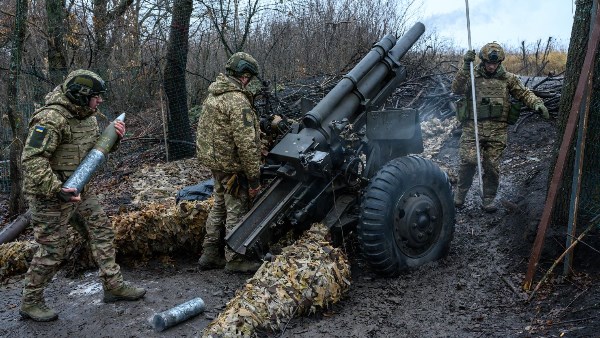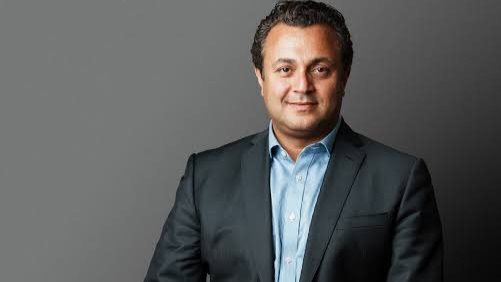
There’s no sign that that appetite to invest in defence is slowing down
Defense startups are booming as VCs race to rearm Europe

European defense startups are attracting swathes of private capital, as investors look for exposure to an industry on the cusp of receiving a leg-up from massive rearmament plans.
Pressure from U.S. President Donald Trump, the ongoing Russia-Ukraine war and widespread geopolitical instability culminated in commitments from the European Union and the U.K. this year to drastically ramp up defense spending. Meanwhile, members of the NATO military alliance agreed over the summer to raise their security spending targets to 5% of gross domestic product.
Defense investment landscape ‘unrecognisable’
Since Russia’s full-scale invasion of Ukraine in early 2022, private capital has been pouring into European defense firms. According to a February report from Dealroom and the NATO Innovation Fund — a venture capital fund backed by 24 NATO member states — VC investments in European defense and security startups surged to a record $5.2 billion in 2024, while the overall VC market in the region shrank.
“Appetite for defence, security and resilience startup investment is unrecognisable in Europe from just a few years ago,” Dealroom’s CEO Yoram Wijngaarde said in the report.
There’s no sign that that appetite is slowing down. Loredana Muharremi, equity analyst at Morningstar, told CNBC the trend had accelerated further this year, alongside a surge in investor demand for publicly listed defense companies.
“We’ve seen a step change in Europe’s private defence market since 2022, with a sharp acceleration in the first half of 2025,” she said in an email, noting that the driver this year was NATO’s new spending target. “Not only are overall investment volumes in dollar terms rising, but also per-deal value is higher, pointing to higher valuations.”
Muharremi added that the nature of the deals had also shifted, from M&A-led bolt-on acquisitions to VC investment. “Private capital is playing a critical role in bridging the gap between early-stage prototypes and mainstream defense adoption,” she added.
According to Morningstar’s analysis, the majority of European defense startups are software-driven and AI-enabled, with a focus on drones, cybersecurity and space — innovation areas outside the core remit of many legacy defense firms.
“We’ve seen a step change in Europe’s private defence market since 2022, with a sharp acceleration in the first half of 2025,” she said in an email, noting that the driver this year was NATO’s new spending target. “Not only are overall investment volumes in dollar terms rising, but also per-deal value is higher, pointing to higher valuations.”
Muharremi added that the nature of the deals had also shifted, from M&A-led bolt-on acquisitions to VC investment. “Private capital is playing a critical role in bridging the gap between early-stage prototypes and mainstream defense adoption,” she added.
According to Morningstar’s analysis, the majority of European defense startups are software-driven and AI-enabled, with a focus on drones, cybersecurity and space — innovation areas outside the core remit of many legacy defense firms.
“Another important trend is the growing role of U.S. investors, especially in later-stage venture rounds, which is providing the capital needed to scale,” Muharremi added.
One U.S. investor taking an interest in the European defense space is Scout Ventures, a Texas-based VC firm with a focus on early-stage startups.
“Historically, the main market for dual-use or defense-focused organizations was the United States,” Cody Huggins, a partner at Scout and former U.S. army officer, told CNBC on a call. “The U.S. just had a massive budget, and was the market to be in — now it’s really shifted to what I would call four main hubs, Europe being one of those.”
Huggins said Southeast Asia and the Gulf states were also emerging as focal points of defense tech innovation.
“Where the money is, you’re going to have folks fall, and so you’re going to see high-caliber entrepreneurs that otherwise wouldn’t have built in this space because they would be concerned that there weren’t the contracts or the venture capital or growth equity in Europe,” he added. “And that paradigm has shifted dramatically with the increase [in regional budgets].”





-1120252475029447.jpg)













